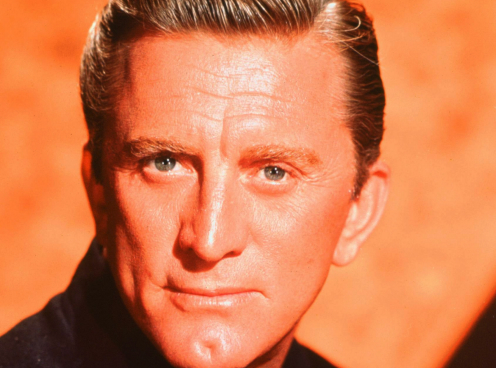Spartacus

Full Description
Based on Jewish writer Howard Fast’s 1951 novel, with a script by famed blacklisted screenwriter Dalton Trumbo, the restored, ferociously bold Spartacus is one of the final pre-CGI widescreen epics made during the glory days of the Hollywood studio system. Thracian slave Spartacus (SFJFF Freedom of Expression honoree Kirk Douglas) is bought by Roman trader Batiatus (an Oscar-winning role for Peter Ustinov) and cruelly trained to become a gladiator for the entertainment of his masters. Pushed over the edge, Spartacus starts a rebellion that sets the empire on fire. Back in Rome, two opposing senators, the wise Gracchus (Charles Laughton) and the snaky Crassus (Laurence Olivier), use the revolt to make a bid for absolute power. The tremendous battle sequence between Spartacus’s outnumbered slaves and Crassus’s legions is a thrilling 35mm Technirama spectacle that can only be truly experienced on the big screen. The production history of Spartacus, meanwhile, is nearly as legendary as its story. A week into shooting, director Anthony Mann quit (or was fired) after producer Douglas proved dissatisfied with the footage he’d seen. Taking over was a brash Jewish kid from the Bronx, 30-year-old Stanley Kubrick, who had just quit (or was fired) from the set of Marlon Brando’s One-Eyed Jacks. Into this hothouse of ego and talent were added Fast and Trumbo, politically committed writers who had been jailed during the Hollywood Red Scare (Fast writing most of the novel in prison). Spartacus’s finale—the classic moment when the beaten slaves refuse to identify their leader, each declaring, “I am Spartacus!”—calls to mind the McCarthy-era witch hunts as it closes a monumental drama that went on to win four Academy Awards. Blatantly copied since by Braveheart (1995) and Gladiator (2000), the towering performance created by Kirk Douglas in Spartacus, alternately tender and tough, is the original deal.
Director(s)
Country(ies)
Language(s)
Release Year
Festival Year(s)
Running Time
195
Writer(s)
Cinematographer(s)
Editor(s)
Cast
